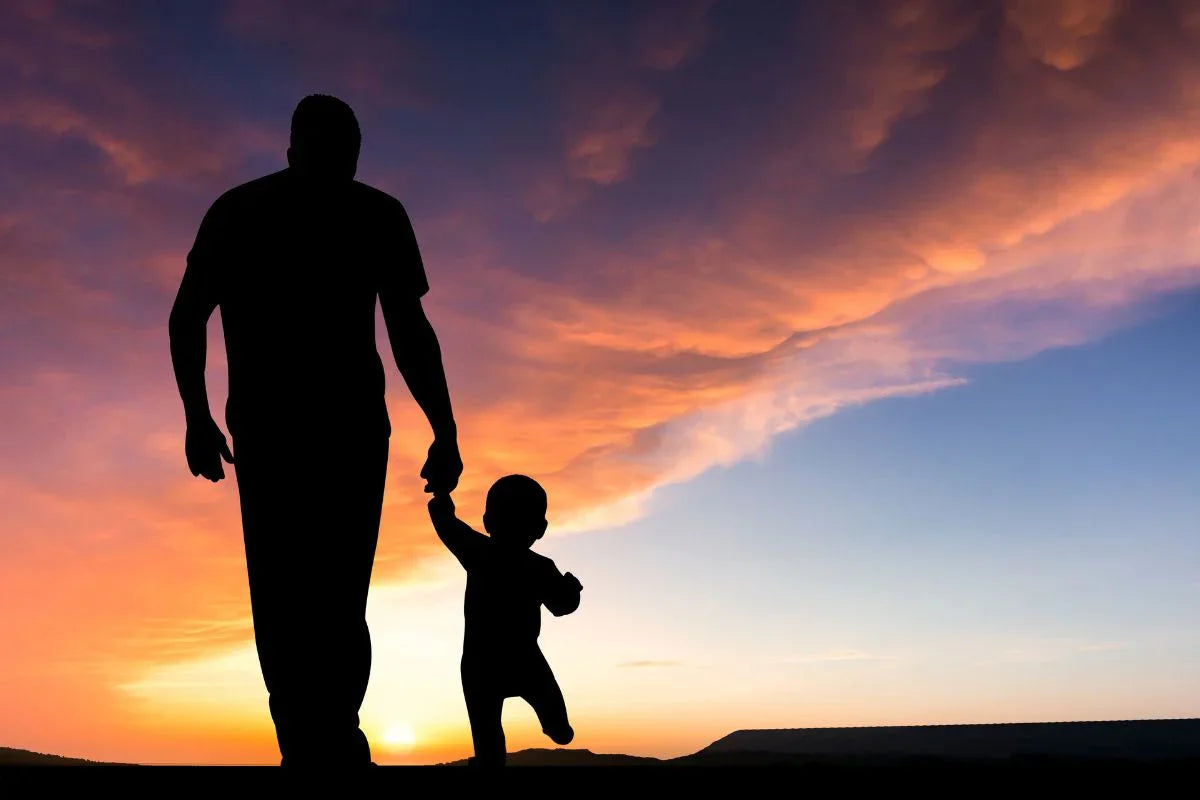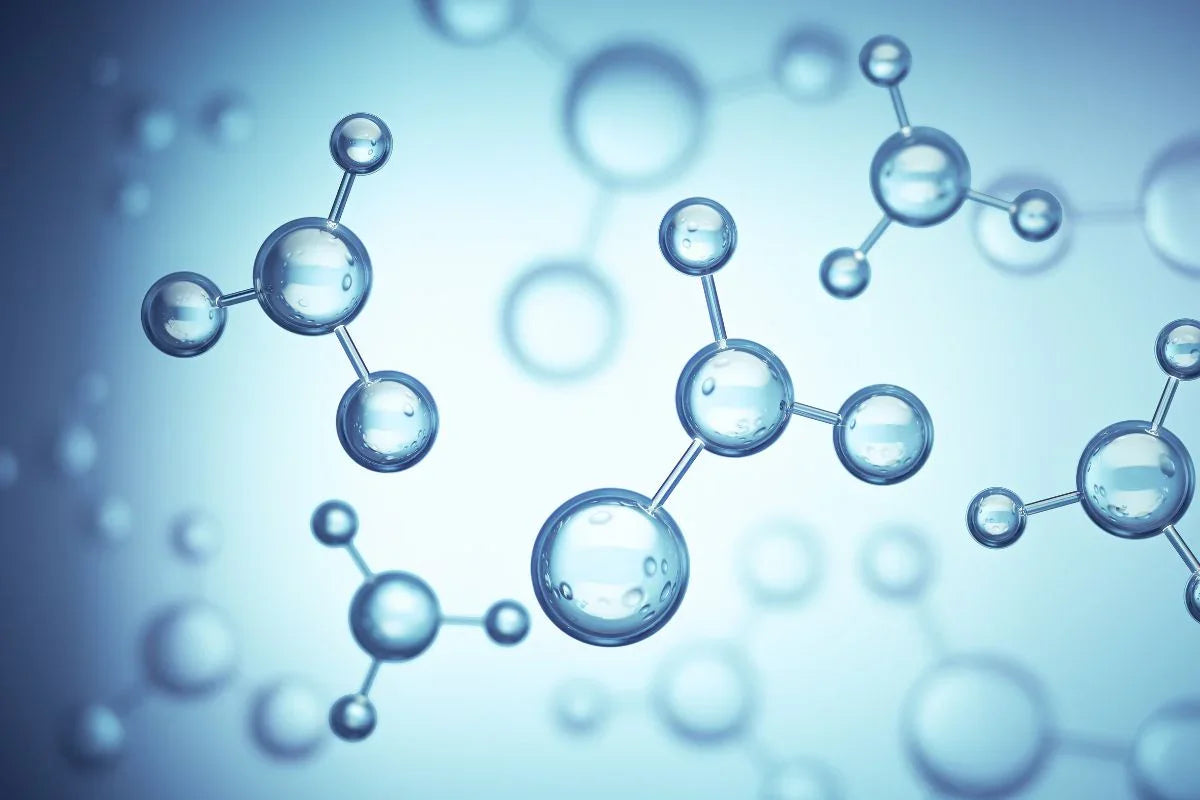
The human father is unique
Compared to our biological relatives, only humans have involved and empathetic fathers. What is the evolutionary reason for this? How is it that we are the only great apes in which men evolved into devoted fathers? Who is the human father, and what is his role within the family and society?
The difference between us and other apes (yes, humans are also part of the family Hominidae) is a favorite research topic among anthropologists. Yet in many studies, scientists overlooked one unique human trait—one essential for our survival as a species: fatherhood.
Last century
By the end of the last century, the common belief was that fathers contributed little to their children’s lives, that fatherhood had little value for society, and that when men did engage in childrearing, it was learned behavior. It was even assumed that fathers did not form bonds with their children as strongly as mothers did—not only because men cannot give birth, but also because their work often meant less time spent with children.
Men with morning sickness
Ever heard of the Couvade syndrome? It refers to the phenomenon where men experience strong physical or psychological reactions when their partner is pregnant—also called the “involuntary manifestation of pregnancy in men.”
Primates
It is quite remarkable that we overlooked the uniqueness of human fatherhood for so long. In most primate species, males do not even stay with their family; after mating, they move on to the next female. Humans belong to the mere 5% of all mammals that have engaged, committed fathers. The human father’s role is anatomically, physiologically, and neurologically complex, and would never have evolved if a father’s investment in his children were not crucial for survival. That is how evolution works.
Difference between humans and apes
Why did this father role emerge in humans but not in other apes? The reason lies in our anatomy. When we began walking upright, the female birth canal became narrower, while at the same time, the human brain grew unusually large due to genetic change. To ensure mother and child survival, evolution shortened pregnancy so that the baby’s head could safely pass. Babies were thus born long before their brains were fully developed. After weaning, they remained extremely dependent and required adult care. Since mothers often became pregnant again quickly, they sought help.
Female companions
When this situation first arose about 800,000 years ago, mothers initially turned to their female companions: grandmothers, aunts, sisters, or older daughters. In animals, help is usually sought first from same-sex peers, since reciprocity is easier to manage. Males, meanwhile, needed strong reasons to refrain from mating with multiple females and focus exclusively on one’s offspring.
Evolution
Around 500,000 years ago, a critical point was reached. The human brain made a giant leap in size, leaving children dependent for even longer. Female help alone was no longer enough, and mothers turned to fathers. Without paternal help, child survival—and thus genetic survival—was at risk. This gave fathers strong motivation to contribute to raising their offspring and secure their genetic investment.
We resemble our fathers more
Although some of us may look more like our mothers, research shows that mammals genetically resemble their fathers more. Even though we inherit equal genetic material from both parents, we “use” more DNA coming from our fathers.
Man as teacher
Fathers took on a key role especially during adolescence—after infancy but before adulthood—when children learn survival skills and understand the world. Our ancestors taught their children about landscapes, hunting, cooperation, negotiation, and toolmaking. Across cultures, fathers became teachers, while mothers remained focused on bearing and caring for the next child. Even today, in Western societies, fathers often retain this teaching role, though in many different forms depending on culture and environment.
Like mothers, fathers are biologically, psychologically, and behaviorally prepared for parenthood. Hormonal changes also occur in men who become fathers. Lower testosterone and altered oxytocin levels make them more sensitive, better attuned to their children’s needs, and less interested in other women. Brain regions related to empathy, planning, and problem-solving also change.
No equality
Men did not evolve as the equivalent of mothers, but rather as complements. Studies show maternal brain activity peaks in areas of affection and risk recognition, while paternal activity peaks in planning, social cognition, and problem-solving. Yet both parents show increased activity across all areas. Even same-sex parents exhibit these differences, suggesting the brain’s plasticity allows adaptation as needed. Thus evolution ensured that both roles can be represented by any parent pair.
The father-child bond therefore differs from the mother-child bond. Both can be strong and loving, but maternal bonds are more inward, based on affection and care, while paternal bonds, in addition to affection, emphasize challenge. Fathers encourage children to engage with the outside world, meet others, build relationships, study, succeed, and gain confidence.
Different roles
Thanks to these insights, fathers today receive more recognition—though these ideas are still not widespread. Of course, some fathers (and mothers) are absent, but most fathers are engaged in raising their children. Let’s acknowledge the fathers who coach sports, read bedtime stories, find missing socks, and chase away night monsters. Fathers who give their children confidence and help them grow into resilient individuals. By empowering fathers to embrace this role with pride, we also set an example for their sons—the fathers of the future.
Although the father role is equal in value to the mother role, they are different in content. It is crucial to recognize, understand, and appreciate these differences. About 80% of young men want to become fathers one day. Let’s invest more time in truly knowing our fathers—they deserve it!
Source: The marvel of the human dad, January 2019 aeon.co


